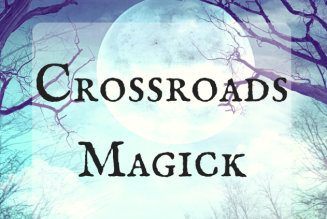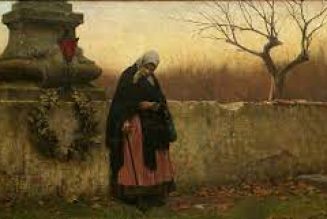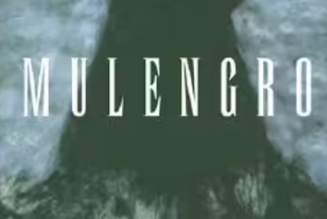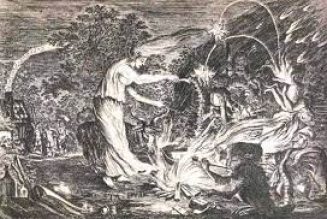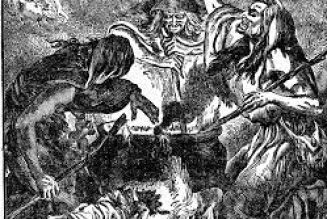Whether reading grimoires or studying under a teacher, it can be difficult to truly know how to discern true value from innocent babble or even outright deception.
As such, when one is Seeking out there, it behooves us to maintain a standard of discernment to help us consider what we discover.
The Measuring tape:
Consider your source. Each author of every book, each teacher of any tradition, and every website and piece of folklore from a fairy story has a foundation in its culture and its environment.
The information you read and hear doesn’t come from anywhere.
Examine the background of the source:
what magical tradition does it stem from?
Is it religious in nature?
Scientific?
What methods and rules does your source consider default or “standard?”
For example, plenty of Wiccans out there write spells with the Law of Three firmly in their mind, believing that bad deeds come back to the doer threefold.
Knowing that one might understand caution or hesitancy if one finds it in a Wiccan spell, even if you don’t really believe that rule yourself.
Hence, you can recognize the reason for it, and deal with it as you choose.
Hammer and Chisel:
Cut to the chase.
Always go straight to the heart of what you’re trying to learn.
If you’re interested in spells, go to the spell section in the book.
No matter what anyone says, there’s nothing wrong with doing this.
If you’re checking to see if a teacher will be able to help you, ask them this simple question
“If you could only teach me one thing, what would it be?”
If they have an answer, listen carefully to it and file it away.
Do not make any immediate commitments, ever.
If they don’t have one, or if they get angry for your asking, well, that’s an answer too.
In any case, never be afraid to go straight to the heart of your interest.
The Brush:
Analyze the accuracy.
Always check your source for reasonable limits.
If you’re analyzing spells, check them against what you have already discovered to be true.
If you’re trying to figure out a teacher’s true ability to teach, check their credentials, and follow up by asking for their teacher’s input.
If you’re judging a website, be sure to research it thoroughly.
There are lots of ways to find out how long a site has been up, and to find out how accurate the information is.
The Blueprints:
Check your intuition.
You need to remember always to check and weigh your sources against your personal views, to see if you and the teacher or author’s style agree with each other.
If the teacher is Vodou, and you aren’t comfortable with that religion, you’re going to have a conflict, and just hoping for the best is definitely not the way of a witch.
If the book is a scientific-styled text, and you tend to be more of an intuitive or artistic kind of witch, there may be problems.
Be prepared to adjust your thinking and adapt, and remember to take it slow.
These things can’t be rushed; only life and death are truly life and death issues, and it’s no good pushing yourself so hard that you break.
Socket Wrench:
All things have value to someone.
Never discount a teacher or a book just from personal dislike at first meeting; even if you don’t agree with their style, you may value their wisdom later.
There are a great many authors and teachers out there, many websites, and tons of stories and books of folklore and history.
You may not see a point in some of these sources, or you may even think they’re complete bunk, but you must never allow yourself to ignore their potential value in them.
Sometimes the most ridiculous source of information imaginable houses a precious gem of truth, completely unknowingly.
Keep your eyes open.










































